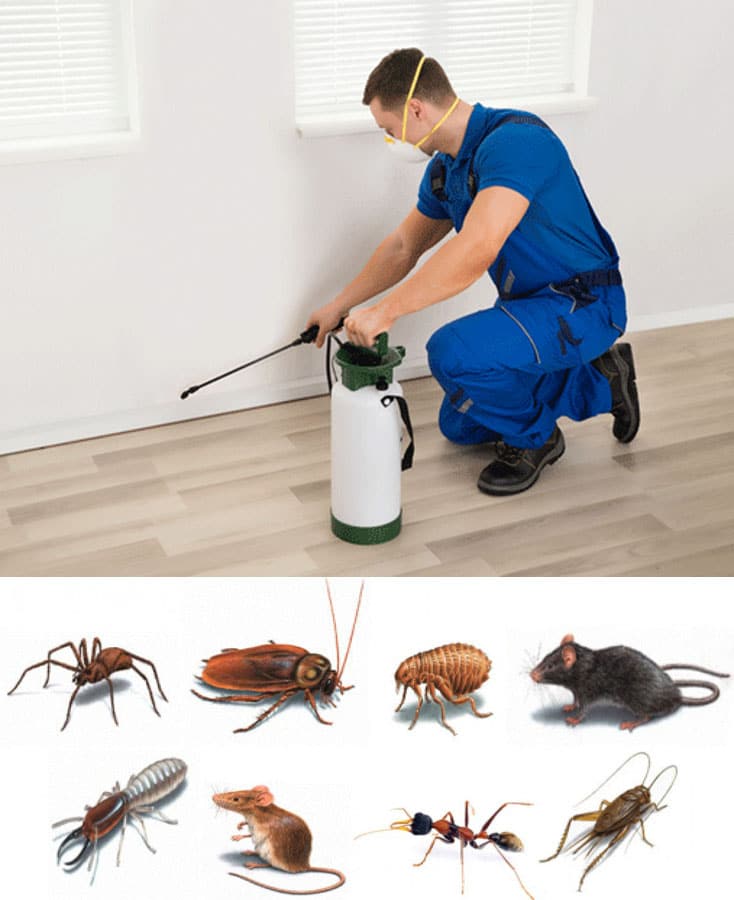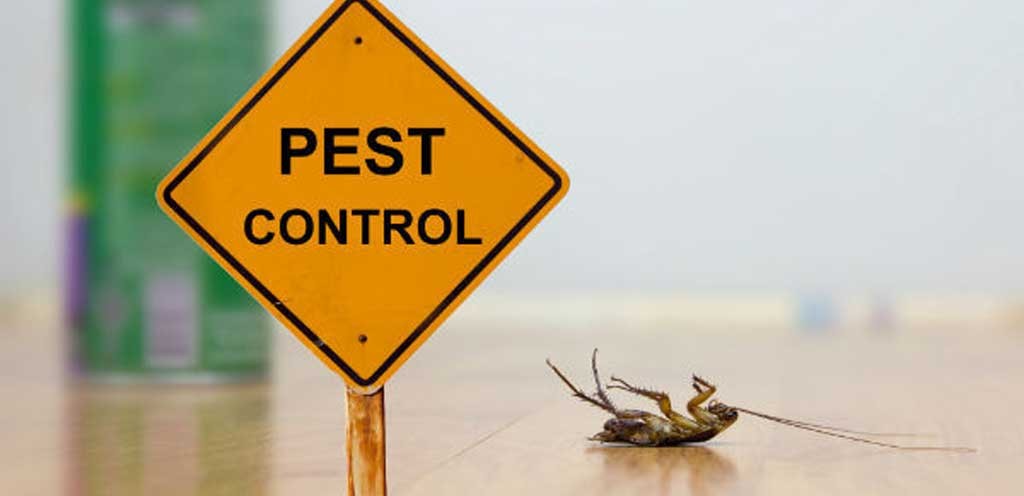a thorough Guide to different kinds of pest control management practices
Pest control management is a significant aspect of maintaining a healthy and balanced and livable atmosphere, whether it is within our houses, landscapes, or work environments. Making use of the many pest control management strategies offered, it could be intimidating to get the most reliable answer for a certain problem with pests. From substance and biological ways to actual and all-natural options, each approach possesses its own special talents and limitations. In this extensive manual, we're going to explore these different types of pest control management practices, supplying ideas into their programs and benefits. By the end, you will have a clearer understanding of which technique could be the best fit for your own pest control management needs. Thus, let us plunge into the fascinating field of pest control and uncover the secrets to a pest-free atmosphere.
Chemical Pest Control Management Techniques

One typical variety of substance pest control is insecticides. Insecticides are chemical substances that are especially created to eliminate or repel bugs. They could be applied in a variety of kinds, such as for instance sprays, baits, or dusts. Pesticides target certain insects, such mosquitoes, termites, or ants, and can be properly used both indoors and outdoors.
Another type of chemical pest control is actually rodenticides. They are substances made to get a grip on communities of rats, such as for example mice and rats. Rodenticides are usually used in bait form, which lures the rats or rodents immediately after which eliminates them after intake. They have been commonly used in agricultural configurations, as well as in residential and commercial structures.
Weed killers, also called herbicides, are another type of substance pest control management strategy. Herbicides are made to precisely eliminate undesirable flowers, named weeds, without producing problems for attractive flowers. They are widely used in agriculture, landscaping, and gardening to control the growth of unwanted vegetation.
While substance pest control practices are impressive in doing away with bugs, it is important to make use of them judiciously and follow security directions. Overuse or misuse of chemical pesticides or herbicides can have unfavorable impacts on real health insurance and the environmental surroundings - Pest control near me. Therefore, it is necessary to use these processes sensibly and start thinking about renewable pest control management methods whenever possible
Biological Pest Control Practices
Biological pest control management strategies include the employment of residing organisms or natural materials to control and get a grip on pest communities. Unlike chemical methods, which frequently count on artificial pesticides or herbicides, biological control methods utilize organic opponents of bugs to modify their own populations. This process is recognized as more green and sustainable, because decreases the using harmful chemical substances and minimizes the risk of pesticide weight.
One popular biological pest control method is the introduction of organic predators or parasitic organisms. Like, ladybugs are introduced to regulate aphids, while specific wasp species tend to be revealed to a target caterpillars. These predators and parasites feed on bugs, reducing their own numbers and preventing infestations.
Another biological control strategy is the utilization of pathogens. Particular bacteria, infections, and fungi can be used to contaminate and destroy particular insects. As an instance, the bacterium Bacillus thuringiensis is normally used to get a grip on caterpillars, whilst produces toxins that are lethal to those pests.
Biological control techniques can also involve using pheromones or normal substances that affect the mating patterns of pests. Pest control near me. By curbing their particular reproduction, these processes help to decrease pest communities after a while
While biological pest control management methods are generally efficient, they may call for longer times to attain desired effects versus chemical practices. In addition, careful consideration needs to be directed at the selection and launch of all-natural opponents to stop unintended problems for helpful bacteria or ecosystems.
Bodily Pest Control Management Practices
To properly manage and get a handle on pest populations, alternative pest control techniques generally bodily pest control management practices are used. These procedures involve the application of real barriers, barriers, or devices to prevent pests from accessing or harmful home. One typical bodily pest control management method is the utilization of screens or nets to keep pests out of structures or landscapes. These displays are generally manufactured from good mesh product that allows for air flow while stopping pests from getting into. Another real pest control management method is the installation of fences or wall space keeping larger insects, like deer or rabbits, of gardens or agricultural areas. These obstacles actually stop the insects' entry to the area, decreasing the possibility of harm. In addition, barriers and products could be used to capture or repel insects. For instance, gooey barriers may be placed in places that insects are problems, therefore the bugs check it out become trapped with the adhesive area. Ultrasonic devices could also be used to give off high frequency noise which are unpleasant to pests, creating these to leave place. Actual pest control techniques are an environmentally friendly substitute for chemical pesticides, because they try not to use making use of harmful chemical compounds.
Natural Pest Control Practices
Natural pest control methods supply a lasting and environmentally friendly way of handling and doing away with insects. These procedures prioritize the effective use of all-natural materials and biological agencies, minimizing the need for Visit Your URL substance pesticides that may damage the environmental surroundings and human being health. Just about the most common all-natural pest control management techniques is actually biological control. This calls for exposing all-natural predators or parasitic organisms to prey on or parasitize the bugs. Like, ladybugs are often released to landscapes to regulate aphid populations. Another all-natural technique is the use of repellents based on plants. Certain plants, including marigolds, lavender, and peppermint, emit fragrances that repel bugs like mosquitoes, flies, and ants. Additionally, cultural control methods can be used avoiding and manage pest infestations. This can include proper sanitation, routine upkeep, and marketing biodiversity in garden. Like, rotating vegetation, the removal of garden debris, and stimulating natural predators enables prevent the buildup of pests. By following these all-natural pest control management strategies, individuals and communities can properly manage bugs while minimizing the unfavorable impacts regarding the planet and man health.
Integrated Pest Administration (IPM)
Integrated Pest administration (IPM) is a thorough and organized method to pest control that combines different strategies and methods to efficiently manage bugs while minimizing the usage substance pesticides. IPM will keep bug communities below the economic injury amount through the use of a variety of cultural, biological, and substance control methods.
Cultural control practices include changing great post to read the surroundings to really make it less advantageous for insects. This could possibly consist of procedures including harvest rotation, the proper sanitation, and also the utilization of resilient plant types. By creating negative circumstances for insects, social control strategies can somewhat decrease pest communities.
Biological control techniques involve employing all-natural opponents, eg predators, parasitic organisms, and pathogens, to manage pests. These organic enemies help regulate pest populations by eating on or infecting them. By launching and improving populations of useful organisms, biological control techniques can efficiently reduce bugs.
Chemical control practices are used as a final vacation resort in IPM. They include the targeted and judicious use of pesticides or herbicides to handle pest populations. Unlike old-fashioned pest control practices, IPM is designed to lessen making use of substance pesticides by employing alternate strategies.

Realization
In conclusion, this particular article has furnished a thorough a review of the various forms of pest control management practices. It discussed chemical, biological, bodily, and all-natural pest control management methods, as well as the built-in pest management approach. By understanding these numerous techniques, people will make informed choices by which pest control management method is most suitable for their certain requirements and choices. Powerful pest control is extremely important in preserving an excellent and pest-free atmosphere.